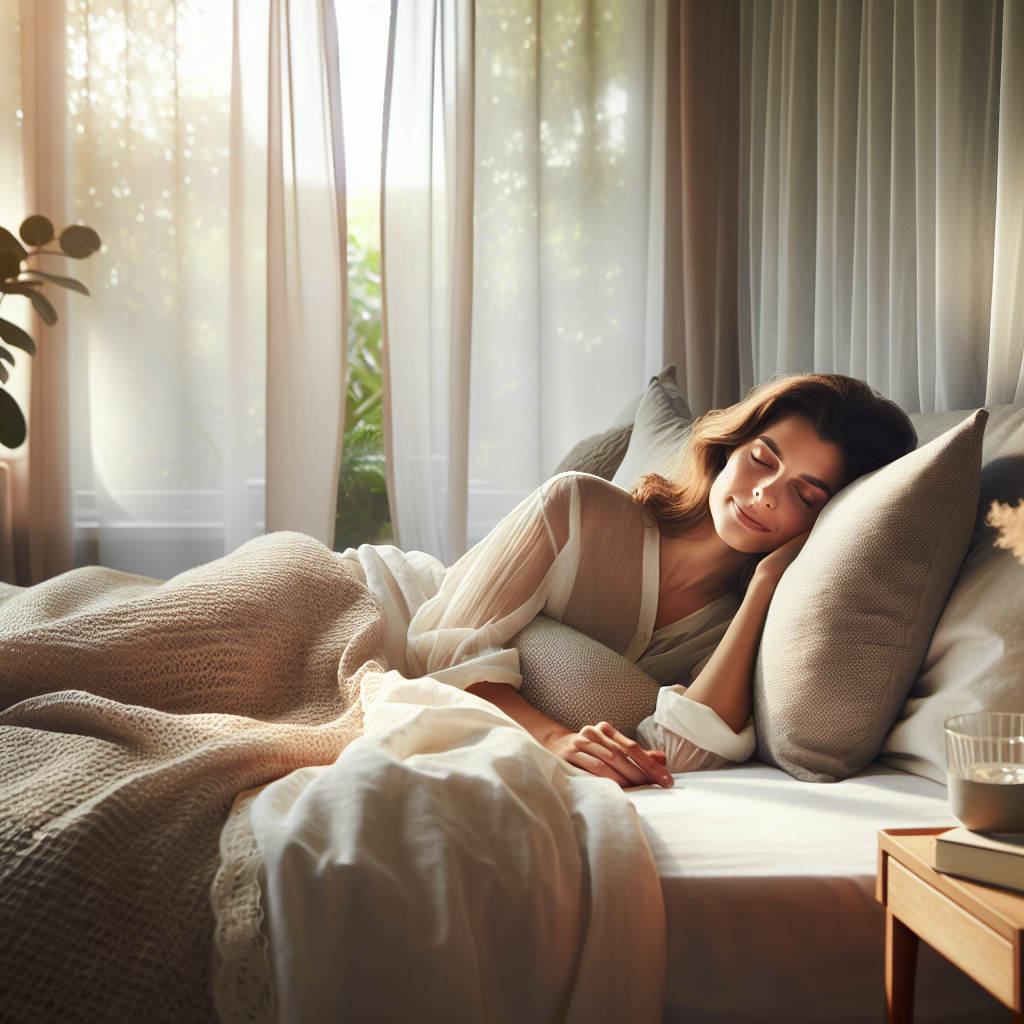
“`html
Unlocking the Mystery of Sleepmaxxing: Enhancing Health and Happiness?
In today’s digital age, social media trends sweep through our lives at lightning speed, influencing everything from fashion to fitness. One such trend gaining momentum is sleepmaxxing, a term that has quickly spread across platforms like TikTok. Influencers encourage followers to improve their sleep quality using various techniques, promising increased energy, enhanced immune function, and better overall health.
Understanding Sleepmaxxing
So, what exactly is sleepmaxxing? While the specifics may vary depending on the influencer, some common strategies include:
- Taping your mouth shut while sleeping
- Avoiding beverages two hours before bedtime
- Cooling the room temperature
- Maintaining a completely dark bedroom
- Utilizing a white noise machine
- Avoiding a morning alarm
- Showering an hour before bed
- Eliminating caffeine intake
- Consuming kiwi fruit before bedtime
- Taking magnesium and melatonin supplements
- Using weighted blankets
- Getting daily sunlight exposure for 30 minutes
- Meditating daily for 30 minutes
The Scientific Perspective on Sleepmaxxing
Despite its online popularity, a detailed search through reputable scientific databases like PubMed and PsycNet reveals no direct studies validating the sleepmaxxing concept itself. However, some individual strategies are rooted in traditional sleep hygiene practices, which are well-researched and documented.
Exploring the Efficacy of Mouth-Taping
One trendy yet contentious technique is mouth-taping during sleep. Proponents claim it can reduce snoring and improve breath quality. However, research from the George Washington University otolaryngology department highlights that these claims lack strong scientific backing.
While addressing snoring with mouth-taping, it’s critical to consult healthcare professionals to rule out underlying issues like allergies, asthma, or sleep apnea.
Essential Sleep Hygiene vs. Sleepmaxxing
Interestingly, many sleepmaxxing tips mirror basic sleep hygiene practices endorsed by experts globally. These practices include:
- Reducing caffeine and alcohol consumption
- Boosting physical activity
- Optimizing sleep timing
- Minimizing evening light exposure
- Limiting daytime naps
- Ensuring a cool, comfortable bedroom
Beyond Basics: Melatonin, Weighted Blankets, and Kiwis?
Some advanced strategies within sleepmaxxing, like using melatonin supplements and weighted blankets, are based on limited scientific evidence. Melatonin, for instance, can help with circadian rhythm disorders but isn’t a universal remedy for all sleep issues.
Claims that consuming kiwi fruit can enhance sleep are intriguing but should be treated cautiously due to potential placebo effects. More robust studies are necessary to affirm such claims.
The Risks of Orthosomnia
As people strive for flawless sleep, a new term, orthosomnia, has emerged. Orthosomnia describes a fixation on achieving perfect sleep nightly, often exacerbated by sleepmaxxing culture. With wearables tracking sleep patterns, individuals may become unnecessarily fixated on sleep perfection, ignoring natural variation.
Evaluating and Improving Your Sleep
Before jumping on the sleepmaxxing bandwagon, it’s essential to assess if there’s a genuine need to amend your sleep practices. Using a sleep diary in combination with wearables can provide valuable insight into your sleep patterns, though they imperfectly capture data compared to polysomnography.
If irregular sleep persists, with difficulty falling or staying asleep three times a week or more, consider consulting with healthcare professionals. Solutions like cognitive behavioral therapy are proven to dramatically improve sleep within weeks.
While achieving restful sleep is invaluable to health and well-being, the quest for perfection can lead to unnecessary anxiety. Embrace healthy sleep practices, but manage expectations to avoid the pitfalls of orthosomnia.

